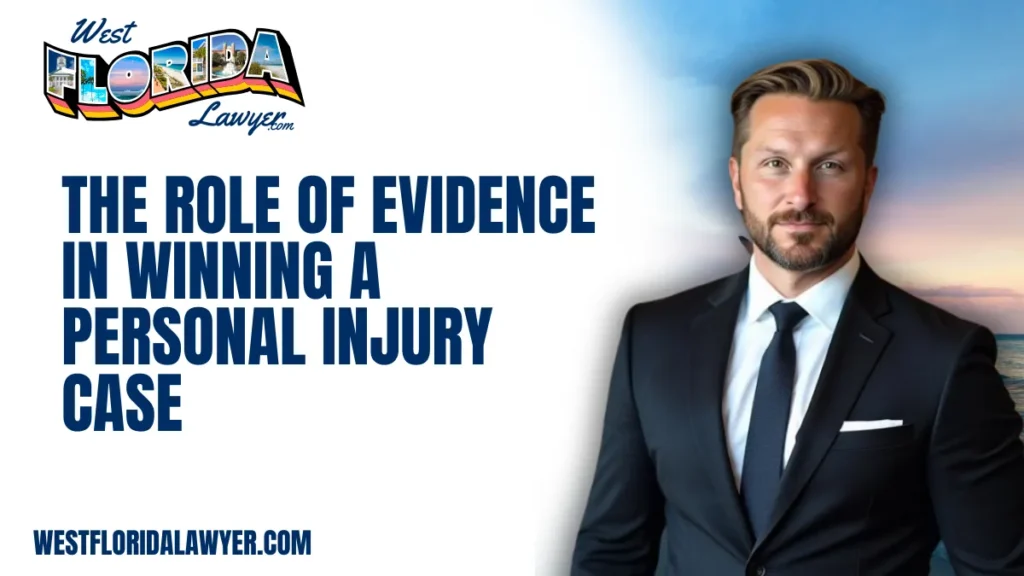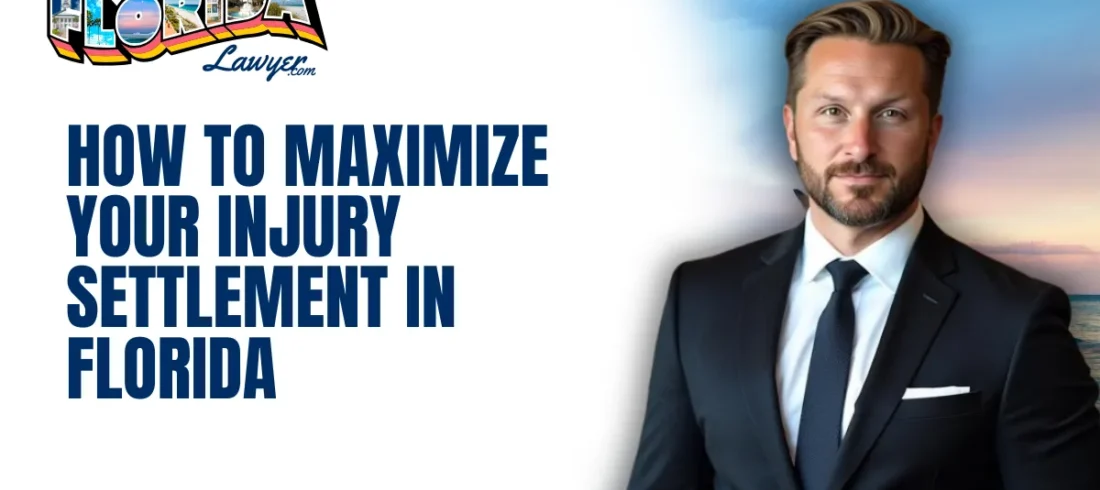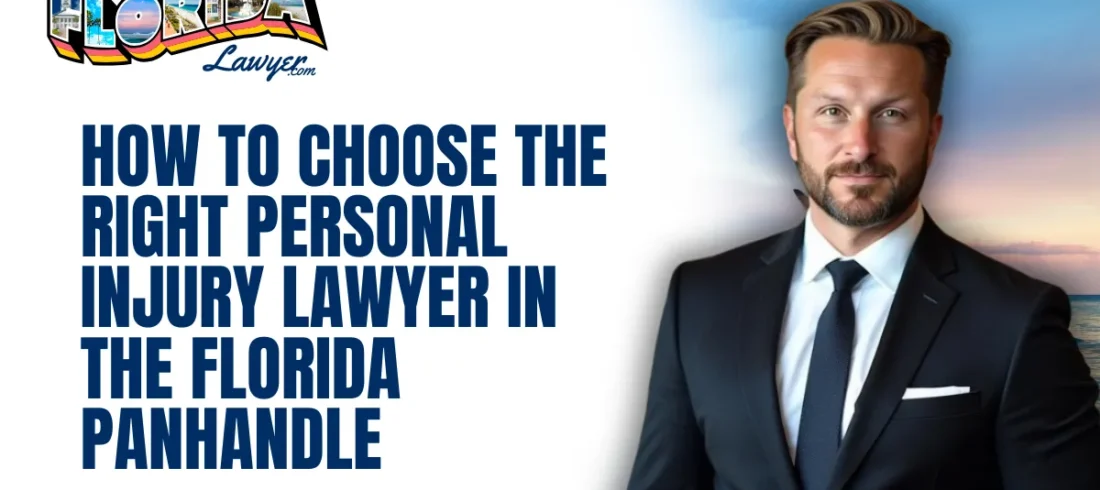
When facing the aftermath of a serious accident, securing justice hinges on the strength and strategy behind one crucial factor: personal injury evidence collection. At West Florida Lawyer, we understand that winning a personal injury claim is not just about telling your story — it’s about proving it. The foundation of any successful personal injury lawsuit is a meticulously built case supported by credible, well-organized, and admissible evidence. Without compelling evidence, even the most legitimate claims can falter.
Complete our free case evaluation form today and let’s talk about how we can help.
Why Personal Injury Evidence Collection Matters
In every personal injury lawsuit, the burden of proof rests on the plaintiff. It is the injured party’s responsibility to demonstrate that the defendant’s negligence caused the injury and that the damages claimed are justified. The more comprehensive and convincing the personal injury evidence collection, the greater the likelihood of a successful outcome. Courts and insurance companies are persuaded by facts, documentation, and undeniable proof — not just emotion.
Without adequate evidence, even a valid claim can be denied or under-compensated. Conversely, a well-documented claim, supported by expert testimony, detailed medical records, and physical evidence, becomes a formidable legal weapon.

Types of Evidence Crucial to a Personal Injury Case
Medical Records and Documentation
The cornerstone of any personal injury evidence collection is detailed and timely medical documentation. This includes:
- Emergency room reports
- Diagnostic imaging (X-rays, MRIs, CT scans)
- Physician notes
- Treatment plans
- Prescription records
- Surgical summaries
- Physical therapy logs
Medical records establish a clear connection between the accident and your injuries. They also serve to quantify your pain, suffering, and medical expenses — all key components of compensation.
Photographic and Video Evidence
Photos and videos taken at the scene of the incident can be powerful in showing:
- The severity of the injuries
- The condition of the accident scene
- Property damage
- Weather and lighting conditions
- Unsafe conditions (in slip and fall or premises liability cases)
Dashcam footage, surveillance camera recordings, and smartphone videos can provide indisputable visual context and are often considered irrefutable in court.
Police Reports and Incident Reports
For car accidents or criminal acts resulting in injury, police reports are essential. These reports typically contain:
- The officer’s observations
- Preliminary fault assessment
- Witness statements
- Traffic citations issued
In premises liability or workplace incidents, incident reports from property owners or employers become a vital part of your personal injury evidence collection.
Witness Statements and Testimony
Eyewitnesses offer independent corroboration of your version of events. Gathering their contact information and securing their statements early can make a substantial difference in court or settlement negotiations. In some cases, expert witnesses such as accident reconstructionists, medical professionals, and economists may be used to bolster the technical or future aspects of the case.
Expert Testimony
Expert witnesses can elevate the credibility of your case by providing insights beyond lay understanding. This includes:
- Medical experts to discuss prognosis and treatment
- Vocational experts to assess future earning potential
- Engineers or reconstruction experts to explain accident dynamics
These experts help juries understand the scope and implications of your injuries, adding significant weight to your claim.
Employment and Financial Records
If your injuries have caused you to miss work, suffer diminished earning capacity, or incur other financial losses, it’s crucial to provide:
- Pay stubs or income records
- Employer letters confirming time off
- Tax returns
- Business income reports (if self-employed)
These documents help validate your economic damages and support claims for lost wages, future earnings, and loss of livelihood.
Chain of Custody and Preserving Evidence
In any legal process, evidence must be handled carefully to maintain its credibility. The “chain of custody” refers to the proper documentation and secure handling of evidence from the moment it is collected until it is presented in court. Any break in this chain can render evidence inadmissible or less persuasive. Our legal team at West Florida Lawyer ensures that all collected evidence is stored, preserved, and documented in a legally compliant manner.
Digital Evidence and Social Media Monitoring
Today, digital footprints can both help and harm a case. Text messages, emails, and social media activity can sometimes be used as evidence — either to corroborate injury claims or to disprove them. For instance, if an injured party posts vacation photos while claiming debilitating pain, credibility is undermined.
We advise clients to be extremely cautious about digital activity following an injury and assist in collecting any helpful digital records, such as:
- Time-stamped messages
- GPS location history
- Digital calendars confirming missed appointments or work
- Surveillance footage from nearby buildings
The Timeline of Evidence Collection
Time is of the essence. Evidence must be collected immediately after the incident whenever possible. As time passes, physical evidence can be lost, witnesses’ memories can fade, and surveillance footage can be overwritten. That’s why contacting an experienced legal team promptly is essential.
At West Florida Lawyer, we initiate an aggressive and proactive investigation process from day one, ensuring that nothing is missed, ignored, or erased. This early commitment to personal injury evidence collection often makes the difference between a weak case and a winning case.
Common Mistakes That Undermine Personal Injury Evidence Collection
- Delaying medical treatment – Waiting too long to seek care gives insurers ammunition to claim your injuries weren’t serious or related to the incident.
- Failing to document injuries – Without photos, notes, or updates, it’s harder to convey the progression of your injuries.
- Overlooking witnesses – Eyewitnesses become harder to track down over time.
- Ignoring expert consultation – Not involving professionals early can weaken the technical aspects of your case.
- Posting carelessly online – Inconsistent statements on social media can destroy credibility.

How West Florida Lawyer Helps Strengthen Your Injury Claim
Our team is equipped with the experience, tools, and tenacity to conduct thorough personal injury evidence collection. We leave no stone unturned when it comes to building an ironclad case. From coordinating with medical professionals and forensic experts to securing surveillance footage and subpoenaing necessary documents, we ensure that your claim stands on solid legal ground.
We approach every case with the mindset that it could go to trial — and prepare accordingly. This aggressive approach ensures that insurance companies know we mean business and motivates them to offer fair settlements early.
The Role of Insurance Companies in Personal Injury Evidence Collection
In personal injury cases, insurance companies often play a significant role in the evidence collection process, particularly when it comes to evaluating claims. Their primary objective is to minimize the amount of compensation they need to pay out, which can sometimes lead them to challenge the credibility or validity of the evidence presented by the injured party. Their approach can affect how your case progresses.
How Insurance Companies Use Evidence Against You
Insurance adjusters are trained to scrutinize every piece of evidence with the goal of reducing their payout. This means that they may try to undermine the validity of your medical records, downplay the severity of your injuries, or question the reliability of your witnesses. Their strategies can include:
- Requesting additional documentation that may delay or complicate your case.
- Re-examining medical evidence through their own experts who may provide contrary opinions.
- Disputing liability by claiming that the accident was partially or entirely your fault.
An insurance company might also use surveillance footage or social media posts against you, looking for any indication that your injuries aren’t as severe as you claim. For example, they might try to discredit your claim if they find photos of you engaging in physical activity or attending social events.
How to Counteract Insurance Companies’ Evidence Tactics
To level the playing field, it’s important to be proactive when it comes to your personal injury evidence collection. At West Florida Lawyer, we help our clients by:
- Conducting independent investigations – Our team gathers additional evidence, including interviewing eyewitnesses, hiring experts to challenge opposing claims, and collecting further documentation to strengthen your case.
- Ensuring accurate medical records – We work closely with healthcare providers to ensure your medical history is fully documented and reflects the extent of your injuries. This is critical in counteracting insurance company tactics that seek to undermine your condition.
- Protecting your digital footprint – We advise you on how to handle social media and digital communications to ensure that nothing is posted or shared that could be used against you later.
- Negotiating with insurers – Having an experienced legal team on your side allows you to deal with insurance companies on equal footing, ensuring that your rights are protected and your evidence is respected.
By taking proactive steps to safeguard your claim, you can increase the chances of obtaining a fair and just settlement. At West Florida Lawyer, we ensure that the evidence you present is used to its fullest potential, leaving no room for insurers to undermine your case.
Start Your Path to Compensation Today
The sooner you act, the stronger your case will be. Let our team at West Florida Lawyer begin the process of securing justice on your behalf. Every successful injury claim starts with effective personal injury evidence collection. Don’t leave your future to chance.
Complete our free case evaluation form today to take the first step toward winning your case.
Sources
- Nolo – Gathering Evidence for Your Personal Injury Claim
Nolo provides reliable legal resources on how to collect various forms of evidence for a personal injury case.
https://www.nolo.com/legal-encyclopedia/gathering-evidence-personal-injury-claims.html - American Bar Association – Presenting Evidence in Court
The ABA outlines best practices for preparing and presenting evidence in a legal setting, especially for injury lawsuits.
https://www.americanbar.org/groups/public_education/resources/law_issues_for_consumers/evidence/ - FindLaw – Types of Personal Injury Evidence
FindLaw offers a comprehensive overview of evidence types crucial in personal injury litigation.
https://injury.findlaw.com/accident-injury-law/personal-injury-evidence.html


